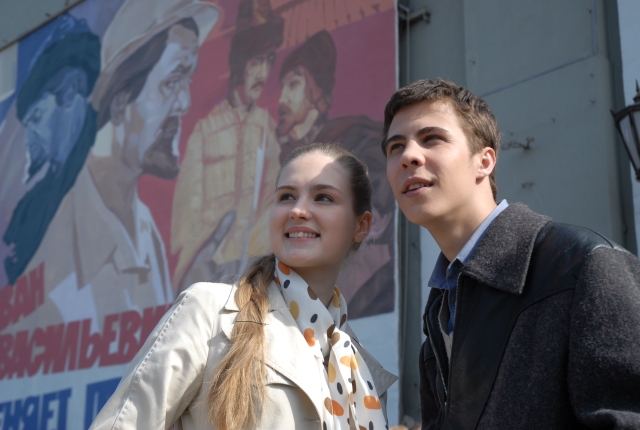
If there is any conclusion to be drawn from Francis Ford Coppola’s Youth without Youth, it is that the acclaimed director has obviously lost the plot. It’s been a decade since his last helming effort (The Rainmaker), but now Coppola returns with a film that is more likely to remind audiences of recent David Lynch than of anything from Coppola’s filmmaking past. The premise is that Dominic, an aging Romanian linguist (Tim Roth), is hit by a strike of lightning in 1938, and consequently returned to physical youthfulness. Nazi scientists are intrigued by this rejuvenation and so plant a spy in his hotel, but in the meantime the lightning also appears to have produced an evil alter ego that Dominic can converse with through mirrors. In amongst this all, Dominic struggles to complete his great linguistic work, while encountering a love from his past who is also wrestling with her own problems; a past life as an Indian woman that continually resurfaces through violent trances.
This basic description might hint at some deeper connections or explanations, but these are never forthcoming. The plot simply moves into increasingly unexpected and incongruous twists or tangents without ever reaching any emotional or intellectual heights. Excessively verbose dialogue only serves to confuse rather than clarify, in a classic display of empty pretentiousness. Tim Roth puts in a fine effort, but clearly struggles to develop an appealing or interesting character from this lacklustre script. What’s more, although this film marks Coppola’s return to the low-budget filmmaking form he used to so revere, the director seems to misuse the accompanying artistic freedom for the sake of it. The already-complicated storyline is only further cluttered by with unnecessary upside-down shots, extreme close-ups, jolted pans and surreal visual devices. The simplistic set design (with Romanian landscapes standing in for Switzerland, Malta and India) is disappointingly at odds with the madcap storyline. Essentially, Coppola has produced an extremely self-conscious, stilted and uninspiring work that will let down fans and newcomers alike.




